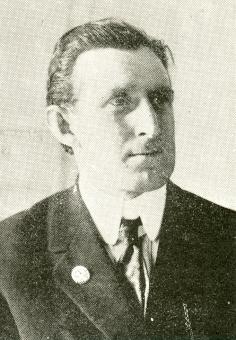
Edward Winter
Black played 25...Qg3, and White resigned.
That sounds decidedly less colourful than ‘showering’. On the other hand, Al Horowitz’s All About Chess (New York, 1971) gave the game twice (on pages 63 and 150), each time with a denial, based on a statement by Marshall’s widow, that any gold had been given (‘... Caroline Marshall, who ought to know, disclaims knowledge of even a shower of pennies’).
To the Chess Notes main page.
To the Archives for other feature articles.
Copyright 2007 Edward Winter. All rights reserved.